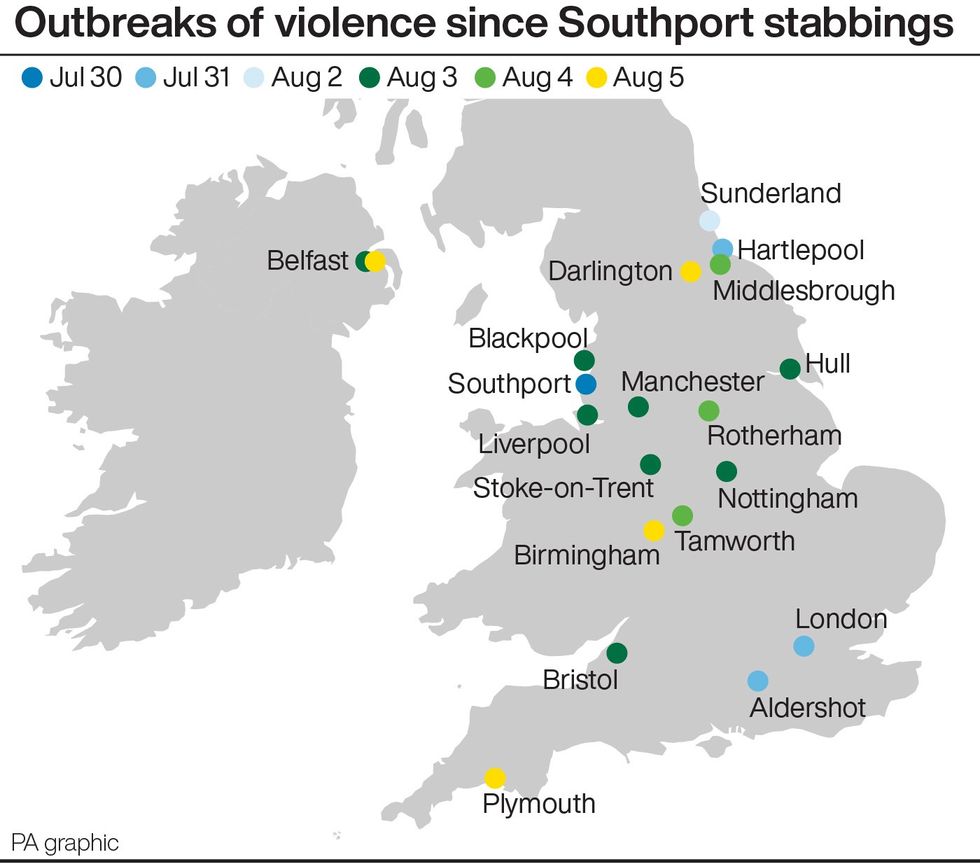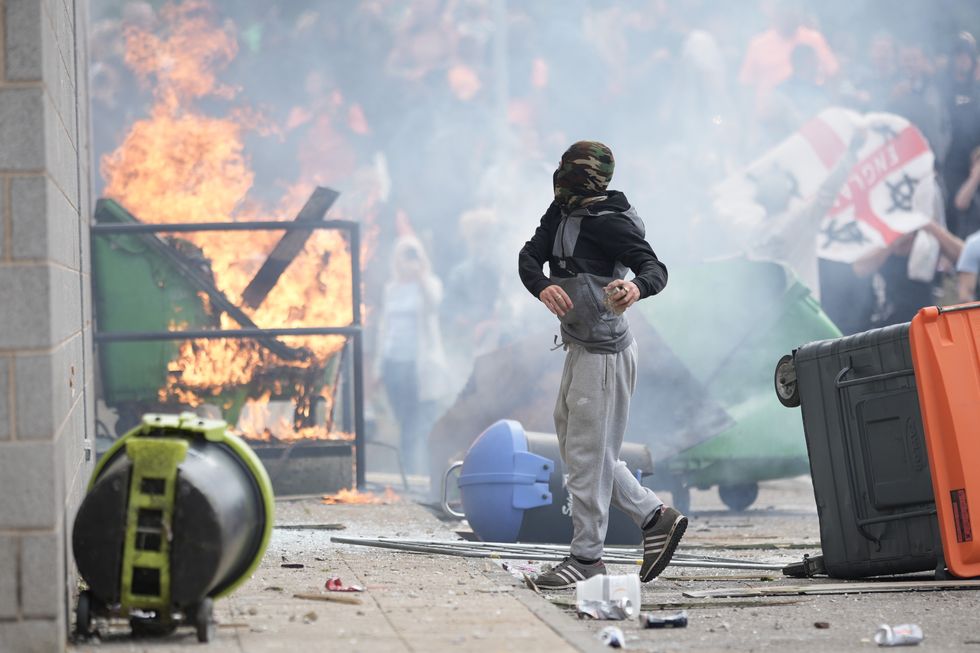Over the past two weeks, protests and violent riots have erupted across towns and cities in England and Northern Ireland resulting in hundreds of arrests.
The unrest is largely centred on an anti-immigration sentiment triggered by the killings of three girls in a knife attack in Southport last Monday.
As of Thursday afternoon violence has broken out in 23 local authorities since July 30 with some including Darlington, Blackpool, Liverpool, Rotherham, Southport, Belfast, Nottingham and Birmingham.
Almost all of the 25 parliamentary constituencies – different from local authorities- returned Labour MPs in last month’s election.
 This map shows the cities and towns which have rioted since the Southport stabbings PA
This map shows the cities and towns which have rioted since the Southport stabbings PA
Some 21 of the rioting constituencies were won by Labour in the General Election last month – and yet the PM has refused to be questioned on the issues and fears of communities.
Reform UK is the second-largest party in more than a third of towns and cities that experienced rioting and protests.
Reform UK came second in the polls in nine of the 21 Labour-held seats which have seen unrest.
Nevertheless, there is not much sympathy for rioters across the political spectrum including with Reform voters.
A YouGov poll showed that the unrest at protests is opposed by 85 per cent of all voters, 87 per cent of Conservative voters, 95 per cent of Labour voters and 76 per cent of Reform voters.
However, when asked if they support the peaceful protests, Reform voters are far more supportive with 81 per cent in support compared to 43 per cent of Conservatives and 19 per cent of Labour voters.
Despite riots taking place in Labour constituencies, Starmer has refused to tackle the issues which are underlying the recent protests.
The areas where unrest has occurred are more likely linked to high levels of deprivation and higher-than-average proportions of asylum seekers in taxpayer-funded accommodation.
Seven out of the ten most deprived areas in England have witnessed riots over the past two weeks.
These include Middlesbrough, Blackpool, Liverpool, Hartlepool, Hull, Manchester and Blackburn, which are in the top 10 most deprived areas according to the government’s Indices of Deprivation.
Data from the Home Office also shows these seven areas receive some of the highest numbers of asylum seekers receiving government support and accommodation per capita of the population.
Liverpool, one of the areas worst hit by the riots, tops the list of asylum seekers receiving government support out of more than 300 local English authorities.

Rioters have attacked hotels housing asylum seekers in the past two weeks
Getty
LATEST FROM MEMBERSHIP:
Rob McNeil, deputy director of the Migration Observatory at the University of Oxford explained that asylum accommodation tended to be in areas with higher deprivation because it is cheaper for the Government.
He added: “These are often communities that are already socio-economically deprived, and have high unemployment, which can contribute to a sense that there is competition for scant resources.”
However, lawyers have warned against directly linking local levels of asylum seekers and rioting but criticised the previous Government’s decision to place asylum hotels in these struggling areas.
Zoe Bantleman, a barrister and legal director of the Immigration Law Practitioners’ Association said: “Prior governments chose to place people seeking asylum in cheap hotels, with private companies profiting millions.
“They ignored our calls to find people community-based accommodation in areas of the UK with the necessary support and infrastructure.”
It comes as a new YouGov poll shows immigration and asylum have topped the list of the top national issues for Britons for the first time since 2016.
The survey, conducted from August 5 to 6, shows that immigration and asylum are the most commonly chosen ‘top issue’ facing the country with 51 per cent of Britons picking it.
But the issue varies by voting group with an overwhelming 90 per cent of Reform UK voters picking it, 76 per cent of Conservative voters, but only 34 per cent of Labour voters and 27 per cent of Lib Dems.